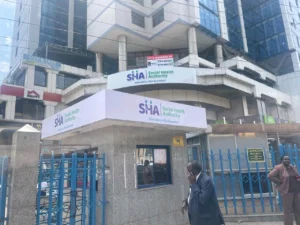Kenya’s healthcare system is undergoing a seismic shift with the rollout of the Social Health Authority (SHA), replacing the long-standing National Health Insurance Fund (NHIF). Touted as the cornerstone of Universal Health Coverage (UHC), SHA promises accessible and quality healthcare for all Kenyans. However, like any ambitious reform, its implementation has not been without its challenges, leaving many citizens with pressing questions.
One of the primary hurdles facing SHA is the technical glitches and inefficiencies plaguing its e-contracting platform and patient verification processes. Reports indicate nearly half of health facilities are yet to fully adopt the digital system, leading to delays in service delivery and frustration for both patients and providers. The burden of legacy NHIF debt also looms large, straining healthcare providers and threatening their operational stability. Furthermore, concerns around transparency and adequate funding for critical aspects like the Primary Healthcare Fund have been raised, with some experts arguing the rollout was rushed without proper mechanisms for means testing and premium financing for those unable to afford contributions.
These challenges inevitably lead to a flurry of questions from Kenyans eager to understand their new healthcare reality.

5 Common Questions Kenyans Have About SHA:
- How do I register for SHA and what documents do I need? Many Kenyans are seeking clarity on the registration process, whether it’s through the USSD code (*147#), the online portal (afyayangu.go.ke), or physical offices, and the required identification documents for themselves and their dependents.
- What are the new contribution rates, and how do they differ from NHIF? The shift to a 2.75% of gross salary contribution (with a minimum of KES 300) has raised questions, especially for those in the informal sector and low-income households.
- What services are covered under SHA, and are there any limits? Kenyans want to know the scope of benefits, including outpatient care, chronic illness management, maternity services, and emergency care, and any associated financial caps or exclusions.
- How does the referral system work under SHA, and can I choose my healthcare provider? Understanding the tiered referral model, from community health units to national referral hospitals, and whether pre-authorization is needed for certain services, is a key concern.
- What happens if I cannot afford to pay my SHA contributions? Many informal workers are worried about the sustainability of their contributions and whether there are provisions for government support for indigent or vulnerable populations.
Addressing these challenges and providing clear, consistent communication will be crucial for SHA to truly deliver on its promise of universal healthcare for all Kenyans.